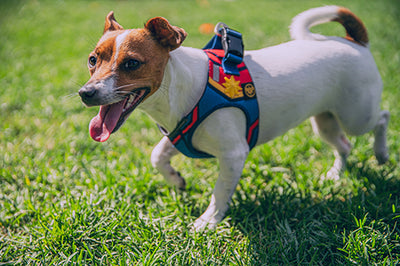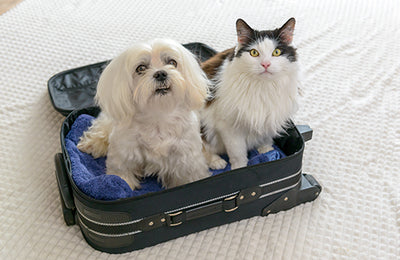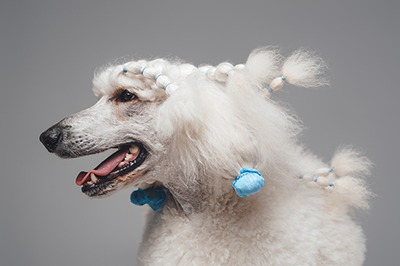When it comes to walking your dog, selecting the appropriate gear is essential for their comfort, safety, and overall well-being. The choice between a harness and a collar depends on various factors, including the specific needs of different dog breeds. By understanding the unique requirements of different breeds, you'll be better equipped to make an informed decision and provide an enjoyable walking experience for both you and your furry companion.
Harnesses offer several advantages, especially for specific breeds:
- Small and Toy Breeds: Chihuahuas, Yorkshire Terriers, and Shih Tzus, tend to have delicate necks and throats. Using a harness reduces strain on these sensitive areas, providing better control and minimizing the risk of injury during walks.
- Brachycephalic Breeds: Bulldogs & Pugs, for example, have shortened muzzles and respiratory challenges. A harness allows for even weight distribution, alleviating pressure on their throat and reducing breathing difficulties that can be exacerbated by pulling on a leash.
- Dogs Prone to Back or Spinal Issues: Certain breeds, such as Dachshunds and Basset Hounds, are predisposed to back or spinal problems. Using a harness provides added support and stability, reducing the risk of strain or injury to their delicate spine while on walks.
Collars are a suitable choice particularly for those with specific characteristics:
- Well-Trained and Calm Dogs: Breeds that are well-behaved, responsive to commands, and have excellent leash manners, such as Golden Retrievers, Labrador Retrievers, and Border Collies, can typically be walked comfortably with a leash. They require minimal additional control and benefit from the freedom of movement provided by a leash.
- Medium to Large Breeds: German Shepherds, Boxers, and Huskies, may find leashes to be sufficient during walks. These breeds generally have sufficient strength and responsiveness to walk comfortably without the need for additional support from a harness.
- Dogs with Good Leash Etiquette: Certain breeds, such as Standard Poodles, Australian Shepherds, and Cocker Spaniels, often exhibit good leash manners naturally. They walk calmly by their owner's side, without excessive pulling or tugging, making a leash an appropriate and convenient choice for their daily walks.
When choosing between a harness and a leash, consider the specific needs and characteristics of your dog's breed. Remember to assess your dog's size, health, walking behavior, and training goals to make the best decision for their comfort and safety. By selecting the right walking gear, you'll enhance your dog's walking experience, foster a stronger bond, and promote a healthier lifestyle for both you and your beloved pet.






